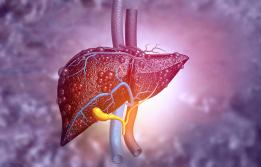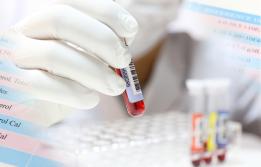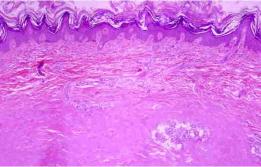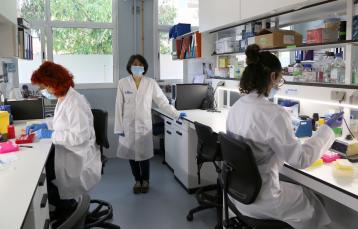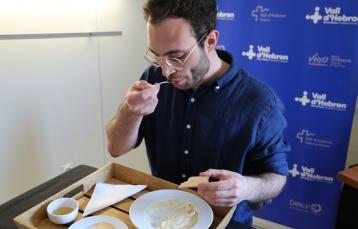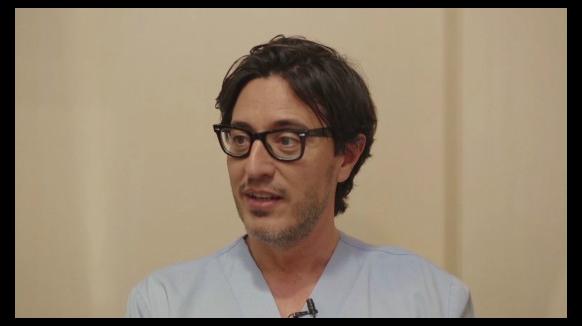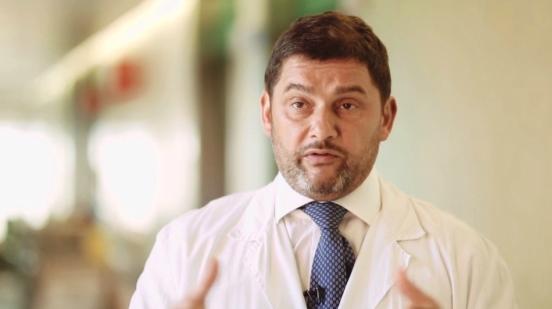The Digestive System
Description
The teaching unit is made up from the Departments of the Digestive System, Digestive Endoscopy and Hepatology, although we also work with Internal Medicine, Intensive Care Medicine, the A&E Department, and with the Radiodiagnosis, Nutritional Support and Digestive Surgery Departments.
Resident physicians accompany staff doctors on their hospital rounds on a daily basis. During these visits, they take down medical histories and, under supervision, perform the necessary examinations for patients with digestive disorders, such as imaging and functional tests to diagnose diseases of the oesophagus, stomach, intestine, colon, pancreas, liver, and bile ducts. Tests can include manometric examinations, breath tests and intestinal biopsies, and imaging tests such as CT scans or echographs.
Over the course of the residency, doctors will become familiar with the most common diseases in the specialisation. In Internal Medicine and Hepatology, residents have the opportunity to learn about the hallmarks of acute and chronic hepatitis and cirrhosis of the liver, as well as carrying out diagnosis, serological tests, treatment, management of complications should they occur, and prevention.
This unit runs 24-hour shifts every 6 days to deal with cases related to the digestive system and other specialisations.
The Digestive System programme performs an important scientific function for the Vall d’Hebron Research Institute and CIBERehd , and has four lines of research:
- Gastrointestinal motility
- Inflammatory bowel disease
- Experimental models for the study of new treatments in acute and chronic stages of inflammatory bowel disease
- Neuro-immuno-gastroenterology
Accredited places: 3
Download the Unit training programme
Why specialise at Vall d’Hebron?
- Because on average we have 1,000 hospital admissions per year.
- Because we are a leading centre for patients with acute gastrointestinal bleeding in Catalonia. We have a 24-hour Gastrointestinal Bleeding Unit with 4 beds and a specialised team comprising professionals from General Surgery, Endoscopy, Radiology and Vascular and Interventional Radiology.
- Because we are part of the Specialised Clinics Network (RAE): 3 specialised clinics that conduct an average of 10,000 consultations a year.
- Because residents are supervised by the Consultant from the Gastrointestinal Bleeding Unit when on duty during their last two years, to ensure their learning is effective and safe.
- Because we have a dedicated Crohn’s-Colitis Unit to monitor patients’ biological, psychological and social welfare, in addition to conventional medical care. Basic research in the experimental laboratory can be carried out thanks to the 2,500 patients registered in the unit database.
- Because the Gastrointestinal Motor Dysfunction Unit is a national leader in the study of patients with serious motor and functional disorders.
- Because we have a Pancreas Unit specialising in the management of complex illnesses such as cystic fibrosis, chronic pancreatitis and pancreatic tumours.
- Because the Hepatology Unit offers the most up-to-date diagnostic procedures, treatments for complications arising from portal hypertension, liver transplant techniques, and the latest generation drugs.
- Because the Digestive Endoscopy Unit has the capacity to carry out 15,000 diagnostic and therapeutic examinations per year.
- Because we have the latest generation diagnostic and therapeutic endoscopy technology and equipment, which incorporates the latest advances in transorifice surgery (POEM) and enables gastroscopies, duedenoscopies, colonoscopies, cholangiopancreatographies and echo-endoscopies to be performed.
- Because upon completion of the training period, residents are offered a place on the “Perfecting interventional digestive endoscopy” course.
- Because during your residency we offer the chance to work on your preferred lines of research to enable you to focus your doctoral thesis on the area you are most interested in.
- Because we support training and scientific methodology for the different lines of research, through which predoctoral grants can be obtained for the doctoral thesis.
- Because the Digestive System Unit at Vall d’Hebron is in touch with leading national and international scientific organizations, enabling you to complete stays abroad when you complete your residency.
- Because we offer the chance to take part in undergraduate teaching programmes.
- Because during their last two years of specialisation, residents take part in a clinical study in order to present the results at a national congress, and also publish it whenever possible.
- Because we allow residents to choose to extend their rotation or to work in the Department’s Research Laboratory.











